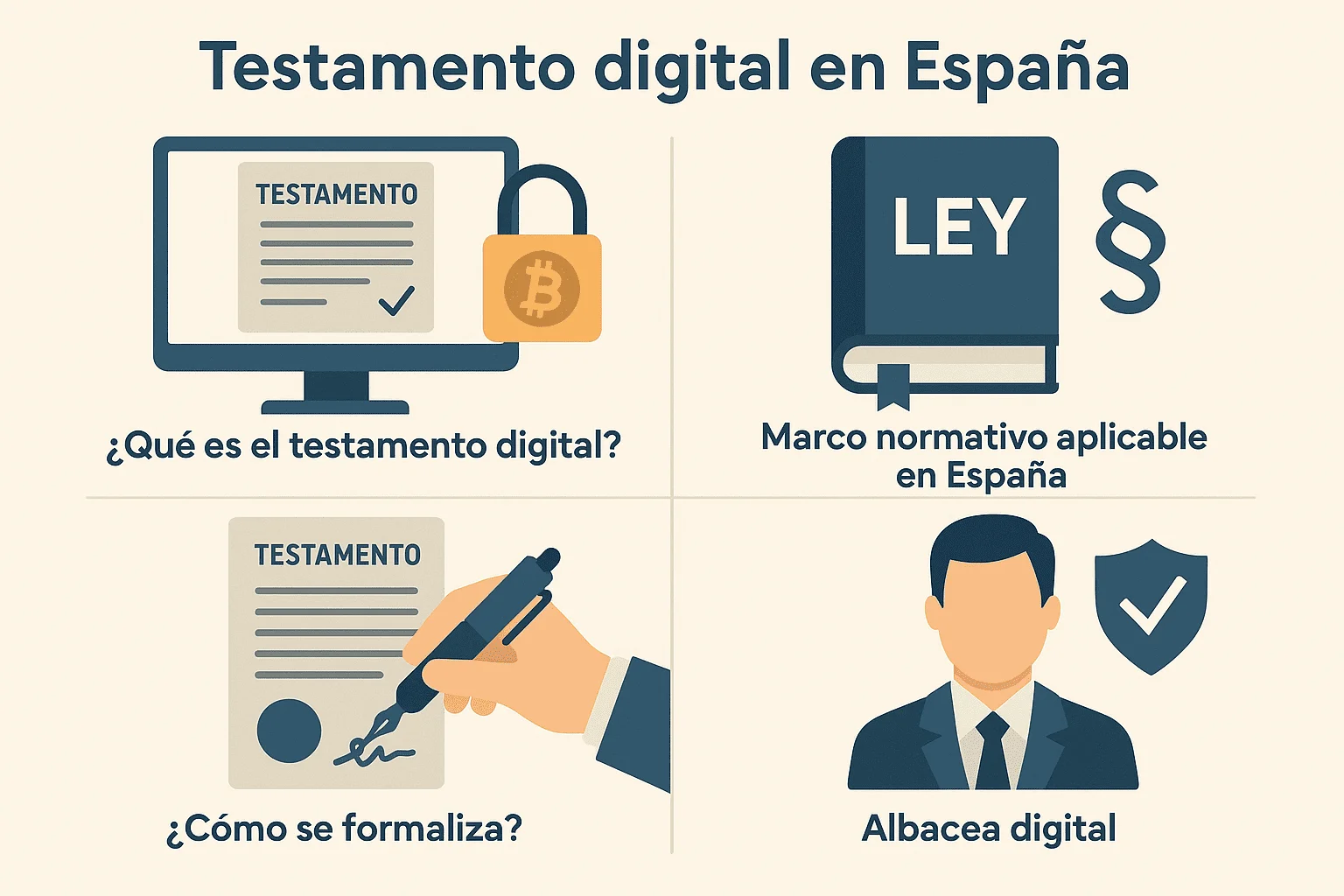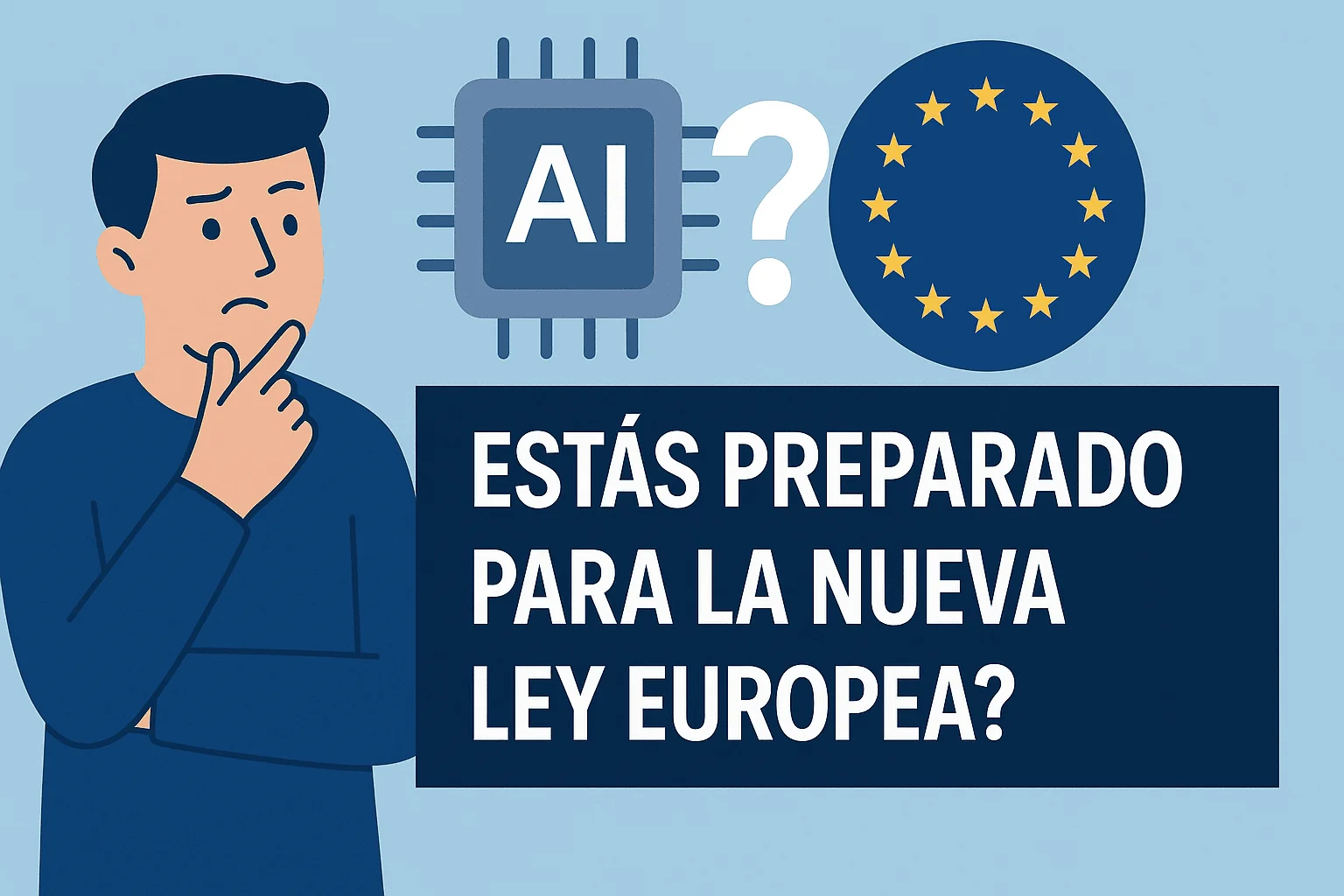Data Protection for Startups: How to Comply with the LOPDGDD from the Start
Data protection is not just a legal obligation — it’s a strategic element for any startup that aims to scale.
From the first contact form to a potential sale or investment, properly managing personal data demonstrates business maturity and respect for your users’ digital rights.
In this article, we explain — from a practical and legal standpoint — what the LOPDGDD (Spanish Organic Law on Data Protection and Guarantee of Digital Rights) requires and how to implement a realistic and effective compliance framework from your startup’s earliest stage.
What Is Personal Data Processing?
Before diving deeper, let’s clarify a key concept:
Processing personal data means any operation you perform on it — from collection to storage, use, analysis, or deletion.
Examples of data processing:
- Sending a newsletter.
- Registering users.
- Analyzing behavior metrics on your website.
- Issuing an invoice.
- Storing customer or lead contact information.
Therefore, if your startup collects, manages, or accesses data from natural persons, you are performing data processing and are subject to both the GDPR and the LOPDGDD.
The Data Lifecycle: A Comprehensive Approach
Compliance isn’t a one-time action.
You must consider the entire data lifecycle, which includes:
- Collection: What’s the legal basis? Do you inform users properly?
- Storage: Where and how do you store it? Are there security measures?
- Use and access: Who can access it, and for what purpose?
- Transfer to third parties: Is it regulated and contractually defined?
- Retention and deletion: How long is it kept? How is it erased?
- User rights: Can users access, rectify, or delete their data? Do you know how to respond?
Properly managing each phase ensures compliance.
What Data Protection Policies Should a Startup Have?
From the outset, your startup should maintain a clear documentation framework.
Here are the main policies you must implement:
1. Privacy Policy
A document for users that informs them about:
- Who the data controller is.
- What data is collected.
- For what purposes.
- The legal basis for processing.
- Who data may be shared with.
- How long it will be retained.
- How users can exercise their rights.
It must be accessible from forms, apps, websites, and any communication channel.
2. Cookie Policy
If you use non-essential cookies (analytics, advertising, etc.), you must:
- Clearly inform users about their use.
- Obtain prior consent through a banner.
- Allow users to configure their preferences.
3. Internal Data Protection Policy
This isn’t public but is mandatory if you have a team. It defines:
- Best practices in data handling.
- Security measures.
- Internal responsibilities.
- Procedures for handling incidents or user rights requests.
4. Data Protection Clauses in Contracts
Include specific clauses in agreements with suppliers, partners, or collaborators, especially if they access personal data.
If they act as data processors, you must sign a specific contract under the Article 28 GDPR conditions.
What Are the Legal Bases for Processing Data?
The GDPR allows personal data processing only when there is a valid legal basis.
The most relevant for startups usually are:
- Explicit consent (e.g., newsletter, marketing, beta testers).
- Contract performance (e.g., registered users, clients).
- Legal obligation (e.g., invoices, tax compliance).
- Legitimate interest (e.g., internal analytics, service improvement — requires balancing).
Each processing activity must be linked to a specific legal basis.
You cannot use data for other purposes unless you have a new legal basis or consent.
User Rights: Access, Deletion, Objection…
As a data controller, your startup must guarantee the exercise of data subject rights (ARSULIPO):
- Access: Know what data you hold.
- Rectification: Correct inaccurate data.
- Erasure (“right to be forgotten”).
- Objection: Refuse processing.
- Restriction: Limit usage.
- Portability: Receive data in a structured format.
You must have efficient and secure procedures to respond to these requests within one month.
Also, inform users of these rights in your privacy policy and provide contact channels (form, email, etc.).
Security Measures: Beyond Antivirus Software
The LOPDGDD requires implementing technical and organizational measures proportional to risk.
Key points for startups:
- Access control: not all employees should have access to all data.
- Password encryption and automatic backups.
- Use reliable tools with proper contractual clauses.
- Procedures for data breaches (notify the AEPD within 72 hours if user rights are at risk).
What Happens If You Don’t Comply with Data Protection Laws?
The Spanish Data Protection Agency (AEPD) has already fined multiple startups for common mistakes such as:
- No visible privacy policy.
- Collecting data without informing users.
- Failing to sign contracts with tech providers.
- Sending marketing emails without consent.
Fines can reach €100,000 for startups, while the GDPR allows up to €20 million or 4% of global annual turnover.
But beyond fines, the real risk is:
- Blocked investment rounds (investors conduct due diligence).
- Loss of client trust.
- Inability to close deals with third parties requiring compliance.
Conclusion: Legal Compliance by Design for Your Startup
This isn’t about bureaucracy.
It’s about building a scalable, secure startup ready to grow without legal setbacks.
- Clearly define your processing activities.
- Inform your users transparently.
- Document everything from the start.
- Use tools with proper safeguards.
- Rely on specialized legal support.
Need Help with Data Protection for Your Startup?
At Legal Core Labs, we help you:
- Implement a fast, scalable compliance system tailored to your business model.
- Design policies and assess your tools.
- Protect yourself from legal risks.
- Respond to the AEPD with confidence.
Comply with the law and strengthen your legal security from day one.



